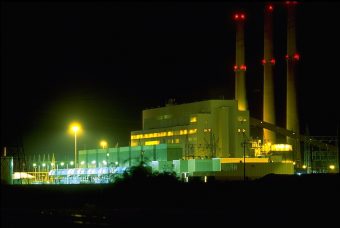The European Investment Bank has agreed to phase out its multibillion-euro financing for fossil fuels within the next two years to become the world’s first ‘“climate bank”.

The bank will end its financing of oil, gas, and coal projects after 2021, a policy that will make the EU’s lending arm the first multilateral lender to rule out financing for projects that contribute to the climate crisis.
The decision to stem the flow of capital into fossil fuel projects has been welcomed by green groups as an important step towards the EU’s aim to be carbon-neutral by 2050.
The EIB, the world’s largest multilateral financial institution, described its decision as a “quantum leap” in ambition. “Climate is the top issue on the political agenda of our time,” said the bank’s president, Werner Hoyer. “We will stop financing fossil fuels and launch the most ambitious climate investment strategy of any public financial institution anywhere.”
The bank’s vice-president, Andrew McDowell, said the move was “an important first step – not the last step, but probably one of the most difficult.”
Under its new policy, the bank will end all lending to fossil fuels within two years and align all funding decisions with the Paris climate accord. Energy projects applying for EIB funding will have to show they can produce one kilowatt hour of energy while emitting less than 250 grammes of carbon dioxide.
The decision to prioritise renewable and efficient energy follows a policy promise by the incoming European commission president, Ursula von der Leyen, to turn the EIB into a “climate bank”, unlocking a potential €1tn in funds to help move Europe’s economy toward cleaner energy.
Von der Leyen also wants the EU to raise its target of cutting emissions by at least 40% from 1990 levels by 2030 in support of plans to become the first climate-neutral continent by 2050.
The EIB’s announcement comes a year later than hoped by climate campaigners but also limits approvals of new fossil fuel projects before 2021 to projects that are already under appraisal by the EIB. This could pose long-term problems for the gas industry, which has more than $200bn in liquefied natural gas projects planned over the next five years.
Colin Roche, of Friends of the Earth Europe, called the decision “a significant victory” for the climate movement. “Finally, the world’s largest public bank has bowed to public pressure and recognised that funding for all fossil fuels must end – and now all other banks, public and private, must follow their lead,” he said.
Nick Mabey, of the environmental thinktank E3G, said: “Europe is sending a clear signal that it intends to move away from fossil fuel investments toward the climate-neutral future its citizens want. The EIB is sending a message to other financial institutions that investment in fossil fuels is drawing to an end.”
Environmental campaigners estimate that the EIB handed out €6.2m every day to fossil fuel companies between 2013 and 2018.
The EIB handed one of Europe’s largest ever loans to the Trans Adriatic Pipeline (TAP), which will bring Caspian gas to Europe, and it has funded plans by the Polish utility PGE to build two gas-fired power plants.
The climate campaign group 350.org said a decisive end to this financial lifeline could prove another nail in the coffin for the fossil fuel industry.
Kate Cahoon, a campaigner for 350.org, which is based in Germany, said: “When the world’s biggest public lender decides to largely ditch fossil fuels, financial markets across the globe will take notice: this is the beginning of the end of climate-wrecking fossil fuel finance.”
Read more: Guardian



